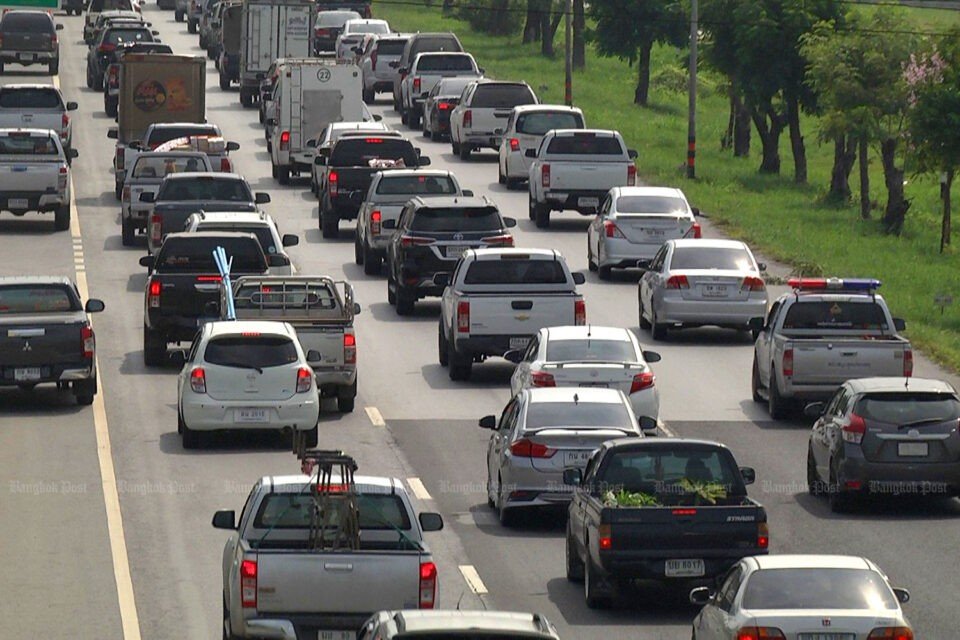Eight people were killed in 49 nationwide traffic accidents on the roads on Thursday, which marked the first day of the long weekend, the Transport Ministry said yesterday.
The four-day long weekend officially began yesterday after the cabinet approved yesterday and Monday as substitute Songkran holidays.
Thursday’s accidents also saw a further 58 people injured on the highways and roads operated by the ministry, said transport permanent secretary Chaiwat Tongkamkoon.
Speeding was the primary cause of the accidents, reported mostly on straight sections of the roads.
Of the 49 accidents, 16 involved motorcycles and one public transport vehicle.
Altogether 2.51 million people used public transport to travel on Thursday, about 10% less than the ministry has estimated. Enough public transport was laid on to meet demand, Mr Chaiwat said.
The permanent secretary added 3.09 million vehicles headed to and out of Bangkok that day, of which 2.8 million were private cars.
The number of motorists using private cars to get to their holiday destinations was 34% higher than estimated.
Mr Chaiwat said no passengers were stranded at bus stations around the country because enough interprovincial buses had been laid on for key routes.
The reason fewer people used public transportation at the start of the long weekend was because some preferred to stay at home while others opted to take their own cars, he said.
The ministry also set up 121 roadside assistance checkpoints along main roads and a total of 10,970 vehicles visited them for help. Of those vehicles, 13 needed repair.
Mr Chaiwat said strict health measures were in place and both public transport staff and their passengers were subject to health scanning procedures.
Meanwhile, the number of passengers at Nakhon Ratchasima train station jumped three-fold on Thursday, according to Amnuay Chumpae, the station manager.
Nakhon Ratchasima is one of the main railway hubs in the Northeast and Mr Amnuay said that on average about 5,000 people a day catch trains there during the holidays.
Most of these passengers travel to nearby provinces.




